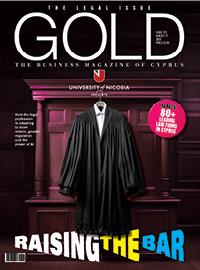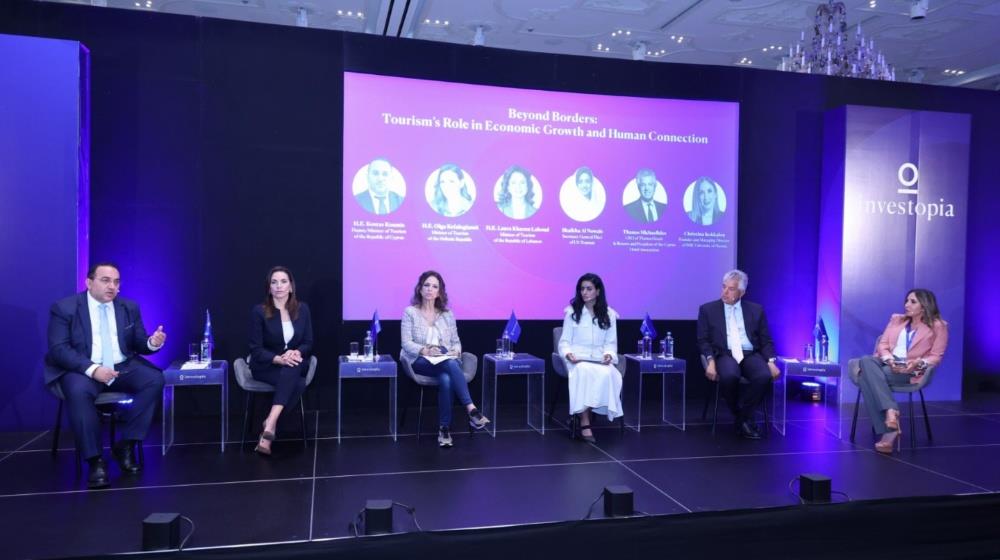In a global environment marked by geopolitical instability, the panel titled “Beyond Borders: Tourism’s Role in Economic Growth and Human Connection” at the Investopia Global Mediterranean Conference highlighted tourism not only as a driver of economic activity, but also as a powerful force for cultural connectivity and regional stability.
The speakers agreed that this new era demands coordinated policies, sustainable hospitality models, and a focus on the quality of the travel experience, with particular emphasis on sustainability and authentic engagement.
The discussion focused on national strategies for tourism diversification, investments targeting the extension of the tourism season, and the role of technology and environmental awareness in shaping the sector’s future. It was noted that tourism offers a critical opportunity for fostering dialogue, knowledge exchange, and trust-building between different societies—especially across the Mediterranean and the Middle East—regions that can serve as examples of harmonious cooperation.
The panel included Kostas Koumis, Deputy Minister of Tourism of the Republic of Cyprus; Thanos Michaelides, CEO of Thanos Hotels & Resorts and President of the Cyprus Hotel Association (PASYXE); Shaikha Al Nowais, Chairwoman of the Tourism Working Group at the Abu Dhabi Chamber; Olga Kefalogianni, Minister of Tourism of the Hellenic Republic; and Laura Khazen Lahoud, Minister of Tourism of Lebanon.
Kostas Koumis emphasized that tourism has historically responded to prevailing global trends, and governments must act alongside the industry by introducing supportive measures. At present, he said, the dominant trend is the growing preference of millions of travelers for eco-friendly destinations. He also noted other emerging patterns: a general rise in travel demand, a surge in solo travel, increased participation in events, and most notably, the transformative impact of artificial intelligence. “These trends are now shaping the tourism industry,” he said.
Olga Kefalogianni referred to the shared culture, language, and aspirations between Greece and Cyprus, stressing the importance of the private sector in taking advantage of opportunities to further advance the industry. Regarding current trends, she focused on the international context, underlining how geopolitical stability consistently affects tourism. She noted the emergence of new markets—such as China and India—as key developments. Sustainability and the response to the climate crisis, she said, are increasingly central to tourism policy. “The sector can play an active role in shaping future solutions,” she added. She also emphasized the need to diversify offerings to meet the expectations of newer demographics, such as Generation Z and millennials. While technology is a valuable tool, she warned, it also brings challenges that must be addressed.
Laura Khazen Lahoud said that in Lebanon, “hospitality is our strength”. Following a series of setbacks, she added, “Lebanon is definitely back. The government is taking all the necessary measures and reforms so we can be a tourism destination again”.
Lahoud said that travellers need a more meaningful and responsible tourism. “It’s all about the full experience of the tourist, from the moment they arrive until the moment they leave,” she pointed out. According to Lahoud, technology is a major force in the tourism sector, which is why Lebanon is currently working on a tourism app.
Shaikha Al Nowais stressed the need for finding the talent in hospitality. “Finding the right talent, the right workforce that is ready for the new wave of travellers who are seeking more depth from their travels is key. We need to be agile as an industry,” she said.
Thanos Michaelides said the new consumer has very specific ideas and needs from travel, and it is important to meet these needs. “Technology can help us reach all market segments,” he pointed out.
Labour is also very important, he said. “Hospitality is labour intensive and needs people who are skilled and who embody the meaning of hospitality. Here in Cyprus, labour is a challenge; we need skilled people. Other countries don’t face this issue so we need to find a way around it,” said Michaelides.
So what are the key priorities for Cyprus to diversify its offering?
As Minister Koumis said, priorities change from time to time. Referring to March 2023, immediately after the pandemic and the loss of Cyprus’ second biggest tourist market, the Russians, Koumis said the top priority was to bring the sector back to pre-pandemic levels. “We wanted to attract new markets so we designed new strategies. We achieved that. Last year we saw record arrivals. Our priority now is more or less to convert Cyprus into a year-round destination based on quality and eco friendliness. Not an easy task, because based in the Mediterranean, Cyprus is affected by seasonality.”
Koumis added, “We are working to improve our connectivity and the pull factor of our country, so as to increase arrivals during the winter months”.
The panel was moderated by Christina Kokkalou, Managing Director at IMR / University of Nicosia.
Event ID:
In partnership with:
Ministry of Energy, Commerce and Industry, Republic of Cyprus, Invest Cyprus, Cyprus Chamber of Commerce and Industry
Main sponsor: Eurobank
Gold Sponsors: Altia, Columbia Group, Finvasia
Silver Sponsors: Athlos Capital, Ecommbx, EY, Perfect Circle Trust, Argyrides & Associates LLC, STI Taxand Cyprus, K.Treppides & Co Ltd
Sponsor: IMR
Organisers: Investopia & IMH









